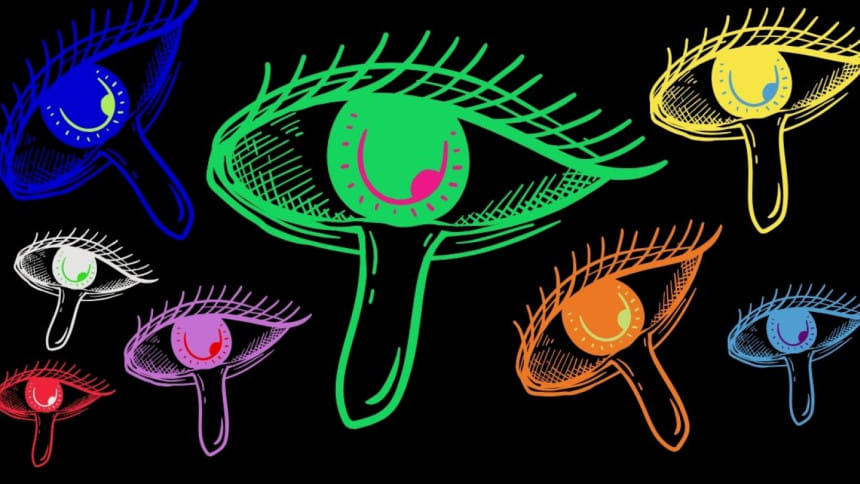The importance of crying, and how films and TV shows help

I began rewatching Grey's Anatomy from its first season as a way to unwind after work. As I watched, it made sense to me that the show had regularly featured in the list of most watched shows ever since its first airing. The medical drama has long been dismissed as an unrealistic portrayal of the actual medical world, but it would be safe to assume that the viewers responsible for the show's success are not searching for medical accuracy. After all, the show is fictional, and one isn't meant to refer to it for accuracy.
"There is a button for coffee, button for your car, a button for everything. But there is no button for crying—you are our button for crying." This is a quote from a German lady who is a fan of Shahrukh Khan's films. At first, it may seem like a bizarre statement. To some, it may sound downright ridiculous: why would we want to cry? Isn't there enough about life that makes us sad? Entertainment should be, well, entertaining.
But there are numerous benefits of crying. Dr Catherine Leaf, author of Cleaning Up Your Mental Mess, describes crying as the brain and body's continuous attempt at restoring balance. Emotional build-up can be broken down into simpler parts. We go through experiences or events that function as factual information for the brain. These give way to associated emotions and thoughts, which include our different interpretations of the events. Finally, there is a build-up of emotionally charged events which stimulate crying as a way of relieving pressure. Crying is a neurophysiological response, meaning there is a neurological, emotional, chemical, and electromagnetic change happening in the body.
Grey's Anatomy, for instance, is popular for (aside from steamy romances and dramatic medical cases) the tragic storylines of its main characters. It is also not uncommon to see new side characters being involved in a plotline that is quick to make the viewers form an emotional attachment to them, only to result in them being killed off in that very episode. Nearly every episode packs an emotional punch. A case can be made that the show's cathartic value is the reason for its steady, high viewership.
Shows and movies that stimulate crying can help us process complex events we may have gone through but have not yet to come to terms with. They allow us to have vicarious experiences, mirroring much of the emotions associated with the fictional events, as though they were occuring in our real lives—without any of the repercussions. As a result, viewers are able to feel safe and reassured enough to express themselves authentically.
As a society, we are underdeveloped in terms of dispersing knowledge, skills, and plans that are effective in healing us after the inevitable traumatic and difficult situations of life. These traumas are known to be passed on across generations, despite claims from earlier generations that they had to go through worse circumstances, yet were able to survive them relatively unscathed. With the rise in depression, anxiety, and other mental health issues in younger generations, a common rhetoric wrongfully describes the youth as being weaker than their predecessors. There are many reasons contributing to the increase in observed mental illnesses. One reason is an increased awareness in the world about psychological problems. It is possible that many mental illnesses were simply not diagnosed back in the day. However, the repressed feelings of difficult experiences cannot disappear, as much as we may wish that to be true.
Media certainly does not contain all the answers, though it can be a small but significant contributor to the resources at our disposal that help us express emotions healthily. When we have a good cry, and have oxytocin and endorphins run through our body—the stress-relieving and mood-enhancing hormones. It is important to be able to release an emotional build-up and to allow tears to flow when they are stimulated, instead of repressing our feelings.
Simply put, dealing with life is hard. Acknowledging what is making us feel bad naturally induces further negative feelings like shame and guilt. Sometimes, in order to even carry on with the daily expectations of our lives, we may feel forced to shove aside the events that weigh heavy on our chest. So, if once in a while you need to put on your favorite show or movie to shed a few tears, don't be afraid to do so.
It is important to note that crying uncontrollably and/or without reason can be harmful and symptomatic of deeper issues which require professional attention. In general, every person can benefit from seeking mental health counselling when encountering difficult situations.
Madiha Athar Khan is a technical writer at Optimizely, and an art enthusiast leading the Art for Soul movement. She can be reached at [email protected]

 For all latest news, follow The Daily Star's Google News channel.
For all latest news, follow The Daily Star's Google News channel. 






Comments